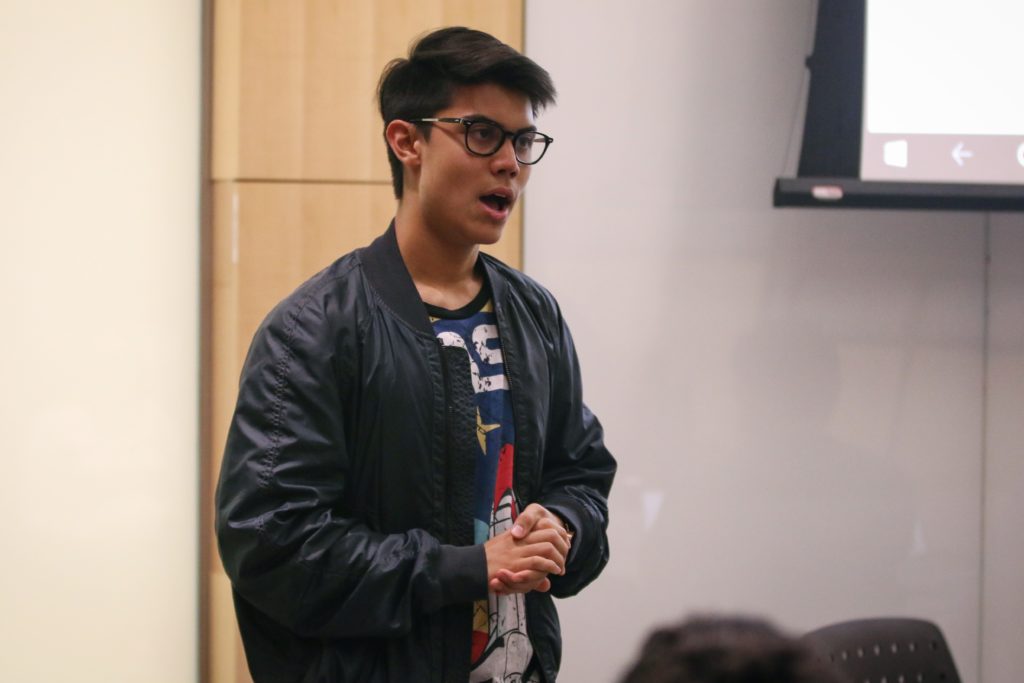Updated: Sept. 13, 2018 at 11:14 a.m.
Student Association leaders may soon face off in the Student Court to debate whether freshman and first-year graduate senators should be able to vote on bills and resolutions.
Sam Paralikas, the SA’s vice president for judicial and legislative affairs, filed a complaint with the Student Court Sunday questioning the constitutionality of a widely supported spring referendum that would grant first-year senators voting rights during their second semester in the senate. Paralikas said the case is a way for the court to decide whether the freshman senators should be able to vote under the SA Constitution, which, before the referendum, dictated that freshman senators can’t vote because they don’t represent a clear constituency.
The suit was filed based on a 1995 precedent when the court ruled on a nearly identical issue and invalidated two referendums that would have allowed first-year senators to vote, Paralakis said. The court ruled at the time that the SA president campaigned for the referendum’s approval – an effort that exceeded their authority.
“We just want to know what the court has to say because this is their purpose, to tell us whether or not we’re in the right,” Paralakis said. “It’s really just us trying to see if they agree with this former precedent or not.”
If the court, which has 12 class days to process the complaint, decides to bring the lawsuit to a hearing, Paralikas and SA President Ashley Le – who will serve as the case’s “defendant” – will face off to determine whether the referendum meets voting rules outlined in the constitution.
Freshmen and first-year graduate students can currently attend SA meetings and work on projects alongside other senators but are not allowed a vote on legislation.
The referendum calls for a change in the SA constitution that would convert the first-year seats to undergraduate- and graduate-at-large positions during the spring semester so they can vote in the senate. If the court strikes down first-year voting rights, the referendum would be invalidated and first-year senators would return to nonvoting members.
Paralikas added that the prosecution is a preventative measure to ensure that in the future, SA members can’t argue during a controversial vote that freshman and first-year senators shouldn’t have the right to cast ballots.
Le declined to say how she would defend the bill in court, saying the information was “confidential” until student leaders go to a hearing.
“This is not a bandaid to the problem or the concern we’ve had in the past,” she said. “This is to make sure there are long-term changes, a long-term and permanent new structure for freshman senators to vote.”
The SA Senate passed a bill Monday standardizing the appointment process for first-year senators with that of voting senators.
Last year’s SA administration faced the same conflict in the spring after the former vice president for judicial and legislative affairs filed a similar complaint over first-year voting rights with the Student Court in April. Sydney Nelson, the SA’s former executive vice president, would have defended the SA in court.
In an April interview, Nelson said she would have argued that by turning first-year and freshman senators into at-large positions, they represent the entire student body.
Yannik Omictin, the SA’s chief of cabinet, initially brought the referendum to a student-body vote as a freshman senator in March. He said the measure has been introduced in the senate several times over the past 20 years but repeatedly failed because senators were hesitant to allow freshmen to vote during their first semester.
He said that if the court doesn’t strike down the measure, the SA Senate can move forward with appointing first-year senators as voting members during their second semester.
“Most likely, the argument will be indeed that this is a different type of referendum, this is a different type of amendment than the one that was in ’95,” he said.
This post was updated to reflect the following correction:
On multiple references, The Hatchet misspelled Sam Paralikas’ name. It is now spelled correctly. We regret this error.





